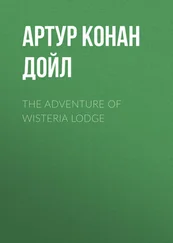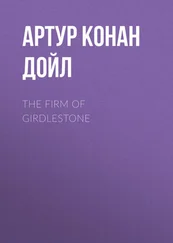Артур Дойл - The Doings of Raffles Haw
Здесь есть возможность читать онлайн «Артур Дойл - The Doings of Raffles Haw» — ознакомительный отрывок электронной книги совершенно бесплатно, а после прочтения отрывка купить полную версию. В некоторых случаях можно слушать аудио, скачать через торрент в формате fb2 и присутствует краткое содержание. Жанр: foreign_antique, foreign_prose, на английском языке. Описание произведения, (предисловие) а так же отзывы посетителей доступны на портале библиотеки ЛибКат.
- Название:The Doings of Raffles Haw
- Автор:
- Жанр:
- Год:неизвестен
- ISBN:нет данных
- Рейтинг книги:3 / 5. Голосов: 1
-
Избранное:Добавить в избранное
- Отзывы:
-
Ваша оценка:
- 60
- 1
- 2
- 3
- 4
- 5
The Doings of Raffles Haw: краткое содержание, описание и аннотация
Предлагаем к чтению аннотацию, описание, краткое содержание или предисловие (зависит от того, что написал сам автор книги «The Doings of Raffles Haw»). Если вы не нашли необходимую информацию о книге — напишите в комментариях, мы постараемся отыскать её.
The Doings of Raffles Haw — читать онлайн ознакомительный отрывок
Ниже представлен текст книги, разбитый по страницам. Система сохранения места последней прочитанной страницы, позволяет с удобством читать онлайн бесплатно книгу «The Doings of Raffles Haw», без необходимости каждый раз заново искать на чём Вы остановились. Поставьте закладку, и сможете в любой момент перейти на страницу, на которой закончили чтение.
Интервал:
Закладка:
Brother and sister stared at the black and white crinkled note with astonishment upon their faces.
“Why, your unknown traveller must have been Monte Cristo, or Rothschild at the least!” said Robert. “I am bound to say, Laura, that I think you have lost your bet.”
“Oh, I am quite content to lose it. I never heard of such a piece of luck. What a perfectly delightful man this must be to know.”
“But I can’t take his money,” said Hector Spurling, looking somewhat ruefully at the note. “A little prize-money is all very well in its way, but a Johnny must draw the line somewhere. Besides it must have been a mistake. And yet he meant to give me something big, for he could not mistake a note for a coin. I suppose I must advertise for the fellow.”
“It seems a pity too,” remarked Robert. “I must say that I don’t quite see it in the same light that you do.”
“Indeed I think that you are very Quixotic, Hector,” said Laura McIntyre. “Why should you not accept it in the spirit in which it was meant? You did this stranger a service – perhaps a greater service than you know of – and he meant this as a little memento of the occasion. I do not see that there is any possible reason against your keeping it.”
“Oh, come!” said the young sailor, with an embarrassed laugh, “it is not quite the thing – not the sort of story one would care to tell at mess.”
“In any case you are off to-morrow morning,” observed Robert. “You have no time to make inquiries about the mysterious Croesus. You must really make the best of it.”
“Well, look here, Laura, you put it in your work-basket,” cried Hector Spurling. “You shall be my banker, and if the rightful owner turns up then I can refer him to you. If not, I suppose we must look on it as a kind of salvage-money, though I am bound to say I don’t feel entirely comfortable about it.” He rose to his feet, and threw the note down into the brown basket of coloured wools which stood beside her. “Now, Laura, I must up anchor, for I promised the governor to be back by nine. It won’t be long this time, dear, and it shall be the last. Good-bye, Robert! Good luck!”
“Good-bye, Hector! Bon voyage! ”
The young artist remained by the table, while his sister followed her lover to the door. In the dim light of the hall he could see their figures and overhear their words.
“Next time, little girl?”
“Next time be it, Hector.”
“And nothing can part us?”
“Nothing.”
“In the whole world?”
“Nothing.”
Robert discreetly closed the door. A moment later a thud from without, and the quick footsteps crunching on the snow told him that their visitor had departed.
CHAPTER II. THE TENANT OF THE NEW HALL
The snow had ceased to fall, but for a week a hard frost had held the country side in its iron grip. The roads rang under the horses’ hoofs, and every wayside ditch and runlet was a street of ice. Over the long undulating landscape the red brick houses peeped out warmly against the spotless background, and the lines of grey smoke streamed straight up into the windless air. The sky was of the lightest palest blue, and the morning sun, shining through the distant fog-wreaths of Birmingham, struck a subdued glow from the broad-spread snow fields which might have gladdened the eyes of an artist.
It did gladden the heart of one who viewed it that morning from the summit of the gently-curving Tamfield Hill Robert McIntyre stood with his elbows upon a gate-rail, his Tam-o’-Shanter hat over his eyes, and a short briar-root pipe in his mouth, looking slowly about him, with the absorbed air of one who breathes his fill of Nature. Beneath him to the north lay the village of Tamfield, red walls, grey roofs, and a scattered bristle of dark trees, with his own little Elmdene nestling back from the broad, white winding Birmingham Road. At the other side, as he slowly faced round, lay a vast stone building, white and clear-cut, fresh from the builders’ hands. A great tower shot up from one corner of it, and a hundred windows twinkled ruddily in the light of the morning sun. A little distance from it stood a second small square low-lying structure, with a tall chimney rising from the midst of it, rolling out a long plume of smoke into the frosty air. The whole vast structure stood within its own grounds, enclosed by a stately park wall, and surrounded by what would in time be an extensive plantation of fir-trees. By the lodge gates a vast pile of debris , with lines of sheds for workmen, and huge heaps of planks from scaffoldings, all proclaimed that the work had only just been brought to an end.
Robert McIntyre looked down with curious eyes at the broad-spread building. It had long been a mystery and a subject of gossip for the whole country side. Hardly a year had elapsed since the rumour had first gone about that a millionaire had bought a tract of land, and that it was his intention to build a country seat upon it. Since then the work had been pushed on night and day, until now it was finished to the last detail in a shorter time than it takes to build many a six-roomed cottage. Every morning two long special trains had arrived from Birmingham, carrying down a great army of labourers, who were relieved in the evening by a fresh gang, who carried on their task under the rays of twelve enormous electric lights. The number of workmen appeared to be only limited by the space into which they could be fitted. Great lines of waggons conveyed the white Portland stone from the depot by the station. Hundreds of busy toilers handed it over, shaped and squared, to the actual masons, who swung it up with steam cranes on to the growing walls, where it was instantly fitted and mortared by their companions. Day by day the house shot higher, while pillar and cornice and carving seemed to bud out from it as if by magic. Nor was the work confined to the main building. A large separate structure sprang up at the same time, and there came gangs of pale-faced men from London with much extraordinary machinery, vast cylinders, wheels and wires, which they fitted up in this outlying building. The great chimney which rose from the centre of it, combined with these strange furnishings, seemed to mean that it was reserved as a factory or place of business, for it was rumoured that this rich man’s hobby was the same as a poor man’s necessity, and that he was fond of working with his own hands amid chemicals and furnaces. Scarce, too, was the second storey begun ere the wood-workers and plumbers and furnishers were busy beneath, carrying out a thousand strange and costly schemes for the greater comfort and convenience of the owner. Singular stories were told all round the country, and even in Birmingham itself, of the extraordinary luxury and the absolute disregard for money which marked all these arrangements. No sum appeared to be too great to spend upon the smallest detail which might do away with or lessen any of the petty inconveniences of life. Waggons and waggons of the richest furniture had passed through the village between lines of staring villagers. Costly skins, glossy carpets, rich rugs, ivory, and ebony, and metal; every glimpse into these storehouses of treasure had given rise to some new legend. And finally, when all had been arranged, there had come a staff of forty servants, who heralded the approach of the owner, Mr. Raffles Haw himself.
It was no wonder, then, that it was with considerable curiosity that Robert McIntyre looked down at the great house, and marked the smoking chimneys, the curtained windows, and the other signs which showed that its tenant had arrived. A vast area of greenhouses gleamed like a lake on the further side, and beyond were the long lines of stables and outhouses. Fifty horses had passed through Tamfield the week before, so that, large as were the preparations, they were not more than would be needed. Who and what could this man be who spent his money with so lavish a hand? His name was unknown. Birmingham was as ignorant as Tamfield as to his origin or the sources of his wealth. Robert McIntyre brooded languidly over the problem as he leaned against the gate, puffing his blue clouds of bird’s-eye into the crisp, still air.
Читать дальшеИнтервал:
Закладка:
Похожие книги на «The Doings of Raffles Haw»
Представляем Вашему вниманию похожие книги на «The Doings of Raffles Haw» списком для выбора. Мы отобрали схожую по названию и смыслу литературу в надежде предоставить читателям больше вариантов отыскать новые, интересные, ещё непрочитанные произведения.
Обсуждение, отзывы о книге «The Doings of Raffles Haw» и просто собственные мнения читателей. Оставьте ваши комментарии, напишите, что Вы думаете о произведении, его смысле или главных героях. Укажите что конкретно понравилось, а что нет, и почему Вы так считаете.












